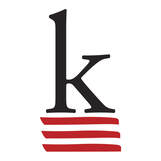|
Several years ago, I read a great article on a unique bit of American history. Those who know me know I’m a sucker for history trivia, but this one really stuck with me. Despite not agreeing with all author David Goldman’s conclusions, it is something I’ve never forgotten, and something I reflect on, especially in the month of July. In honor of July 4th (even though we are a bit past it), I tracked this article down so I could share this bit of history and showcase the effect a single question—the right question—can have on a reader, even years later.
Did You Know? Did you know that the United States of America is the only country that has a national anthem that ends in a question? In fact, our anthem begins with a question as well. I know this might seem irrelevant to life or to writing, but just bear with me on this one, I promise it makes sense by the end. The last line of the anthem says “Oh, say! does that star-spangled banner yet wave, O’er the land of the free and the home of the brave?” This was not just a meaningless question at the time of its writing, this was vital to the men fighting in the war. Francis Scott Key witnessed the bombardment of Fort McHenry from a British ship off the coast. He was there negotiating the release of a friend who had been captured. After witnessing a night of the fort taking a severe beating, the Americans on the ship strained to see how their fellows fared in morning. They were relieved to see that the flag did in fact still wave over the fort, and that their cause had not been abandoned nor overcome. They rallied thanks to that flag. The British gave up their attack, and Key’s poem was printed in the paper shortly thereafter (and eventually set to music). Back To Today . . . There is one quote from Goldman’s article that is particularly relevant to the power this question has for the American people: "The opening question — can you still see our flag? — is a synecdoche of sorts for a bigger question — does that flag “yet wave/O’er the Land of the Free and the Home of the Brave”? The second question refers not only to the battle at hand, but to the destiny of the country. The question is not only whether the flag of freedom still flies over America but also whether America itself is still brave and free.” (David P. Goldman, A National Anthem that Begins and Ends with a Question) As Goldman points out, this is an existential question. The answer to this question is not an absolute; it is ever-changing, and it depends on the person. In fact, the question itself is up for debate (my interpretation is a bit different than his). We all interpret what America means to us individually. But as we all are faced with difficult and controversial issues in today’s complex world, these are worthwhile questions to consider. Is the great American experiment still worth fighting for? Is the concept of what it means to be an American still a worthy goal? And are we personally living this ideal on a daily basis? Does the flag still wave for us? How Does This Relate to Your Writing? It is a brave choice to end anything with a question—be it poetry, fiction, nonfiction, or academic. There’s a reason why ours is the only national anthem to end this way. It is not the easy way. In fact, in most cases I would advise authors to avoid ending on a question. That said, it can be an extremely powerful choice if done right. Presentation certainly is important here, but it can successfully be done using a variety of methods—through characters, narration, or even directly in academic/nonfiction contexts. Really, I think it comes down to the question itself. Merely rhetorical and it falls flat. Leading questions suggest the answer you desire, not one readers discover for themselves. But when you really want your reader to challenge an idea—question something, especially something deeply personal—consider using the existential question and leave your reader looking like Rodin’s Thinker. Succeed, and I assure you they will never forget your book. ***First published on OC-Writers.com
0 Comments
Your comment will be posted after it is approved.
Leave a Reply. |
AuthorKimberly Peticolas is an Editor and Publishing Consultant. She lives in Broomfield, Colorado. Archives
September 2018
Categories |

 RSS Feed
RSS Feed